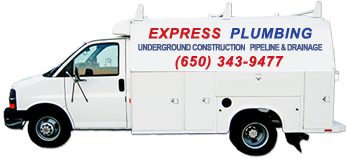
What To Do if Your Sewer Backs Up
Sewer backups can be a messy and unpleasant problem for homeowners. A sewer backup occurs when wastewater from your home’s plumbing system cannot flow out to the main sewer line and instead backs up into your home. This can lead to damage to your property, health hazards, and costly repairs. If you experience a sewer backup, it’s important to know what steps to take to minimize the damage and protect your health. Here’s what you should know to make the best of a bad situation.
Stop Using Water
If you notice a sewer backup, the first thing you should do is stop using water in your home. Stop flushing toilets, running faucets, or running appliances that use water, such as washing machines or dishwashers. This will prevent further backup and reduce the risk of water damage.
Call a Professional Plumber
The next step is to contact a professional plumber, and ideally, one that specializes in sewer backup remediation. If you’re in the Bay Area, our technicians are sewer experts and can get the problem solved immediately. Our team at Express Plumbing use the necessary tools and expertise to identify the source of the problem and fix it as quickly as possible. It’s important to act quickly as sewage backups can worsen over time and cause even more damage that’s costly and difficult to fix.
Protect Yourself
Sewage backups can contain harmful bacteria, viruses, and other contaminants that can pose a danger to yourself and your family. Therefore, it’s important to protect yourself by wearing gloves, protective clothing, and a face mask if you’re in the vicinity of the sewage.
If you have a weakened immune system or underlying health conditions, it’s best to stay out of the affected area until it has been properly cleaned.
Document the Damage
Before you begin cleaning up the sewage, you should document the damage for insurance purposes. Take photos or videos of the affected area and make a list of any and all items that have been damaged. This will effectively streamline the process of reimbursement when you file an insurance claim.
Clean Up the Sewage
Once the plumber has fixed the problem, you now have the dreadful task of cleaning up. However, it’s not enough to merely clean the mess — you need to disinfect the area as well. Use a disinfectant such as bleach to kill any bacteria or viruses that may be present. Make sure that you follow the instructions on the bottle to avoid any harm and always wear protective clothing while cleaning.
Prevent Future Backups
Mitigating the chance of a future sewer backup is all about prevention. One such method involves your toilet. Avoid the temptation to flush items such as wipes, paper towels, or feminine hygiene products down the toilet, as these can cause clogs in your plumbing system. While your plumber is onsite, ask them to inspect your plumbing system for any potential issues, such as tree roots or damaged pipes.
Consider a Preventive Maintenance Plan
Although a preventive plumbing maintenance plan may set you back a few bucks, it’s worth the effort if you’ve had frequent sewer backups or your plumbing is old or outdated. By having a local plumber inspect your drains regularly, hopefully, you never have to worry about another sewer backup, but the peace of mind you’ll get is well worth it.
At Express Plumbing, we’ve been serving our Bay Area community for multiple decades, rely on us for all your plumbing needs. Serving Commercial and residential customers throughout the Bay.










